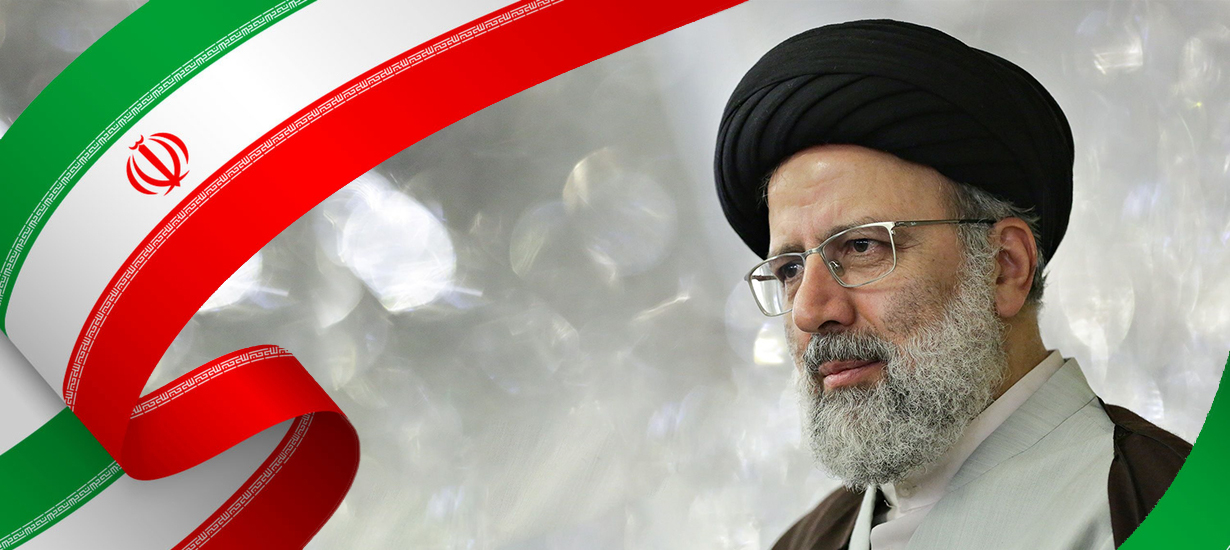During President Raisi’s inauguration speech on August 5th, he confirmed his support for what he described as internal regional dialogue and the reduction in tensions between Iran and neighbouring countries. This is not a new orientation on Iran’s part, as it has always called for regional dialogue, but there have not been the necessary conditions on the ground to allow translating these calls into practical steps, especially as Iran’s differences with some countries in the region are substantial and are not readily resolved.
It can be argued that President Raisi’s positive message of dialogue is motivated by the pressure Iran is currently facing on both the regional and international fronts. These include the lack of progress on the nuclear negotiations in Vienna, and US warnings that time is running out. There are also rising tensions with Israel as it pushes to limit threats to its’ national interest from Iran’s presence in certain countries, especially Syria, while Iran on its part seeks to increase the cost for Israel operating in Syria.
The paradox is that the very conditions that have motivated Iran’s president to call for regional dialogue will also prove impediments towards such dialogue actually taking place, this is illustrated by the following factors:
Raisi’s ability to implement his initiative of dialogue has limits imposed by the balance of power within the Iranian regime. While he appears to have the support of the Supreme Leader of the Republic Ali Khamenei, and is establishing strong channels of communication with the Revolutionary Guard, such an initiative requires the support of other institutions within the regime, and this support does not appear to be forthcoming at this point.
Raisi’s speech included contradictory messages, for while he called for regional dialogue, indicating the necessity of removing foreign influences, he proclaimed that Iran’s influence and role in the region will prevail. This was the same message he conveyed in the first press conference following his election, where he declared that “Iran’s regional role is not up for negotiation” as a response to American and Western calls to expand the scope of negotiations to include, along with the nuclear agreement, a discussion on Iran’s regional role and its ballistic missile program.
These contradictions pose a serious obstacle to any progress being made through regional dialogue, especially since one of the requirements is for Iran to limit its interference with domestic affairs of other countries in the region. These accusations are always met with denial by the Iranian regime, which claims it does not interfere in domestic affairs, but seeks to ‘support the oppressed’.
It does not appear likely that the Pasdaran or Revolutionary Guard will support Raisi’s initiative for several reasons. Most importantly, the regional role the Pasdaran plays is what ensures it’s influence and popularity at home. While there are no guarantees Ismail Qaani, appointed as a successor to Qassem Soleimani the former commander of the Quds Force, will be able to fill the latter’s shoes, it is an indication that Iran will not retreat from its regional role, and offering support to militias in various countries. This is especially evident in Iraq, where it is orchestrating a military escalation against American forces through its loyal militias, to add pressure on President Joe Biden to withdraw US military forces, as well as to express objection to the latest round of negotiations between Washington and Baghdad, that agreed on US forces continuing to perform advisory and logistical tasks inside Iraq.
The negotiations taking place in Vienna between Iran the US have not yet reached a settlement. After six rounds of negotiations, the last of which took place on June 20th, no progress has been made to resolve outstanding differences between Washington and Tehran. There are indications that a seventh round of negotiations may take place next September after the new government in Iran has been formed, a Prime Minister has been appointed and after forming a new Nuclear Talks team. However, there are still significant obstacles to reaching a compromise in these talks.
Whatever trajectory the talks may take, the consequences will manifest on the regional stage, in view of overlap and interconnectedness between various issues, and between the interests of regional and international powers. Iraq, Syria, and Lebanon are likely to experience the impact of these consequences, and in fact already are experiencing them, as in the escalation against American interests in Iraq, US and Israeli strikes against Iran-affiliated militias in both Iraq and Syria, and the latest escalation between Israel and Hezbollah on the Israeli- Lebanese border.
In this context, it is Iran’s actions on the ground that will determine the extent to which its foreign policy has in fact changed with respect to promoting dialogue and reducing tension with the countries of the region. This will soon become clear as various regional issues undergo rapid developments.

